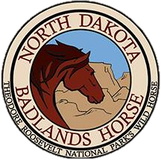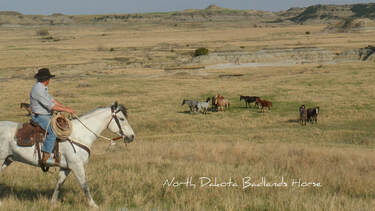TRNP Links
TRNP Park Planning
TRNP Wildlife Viewing Guidelines
TRNP Horse Management
Utility of Low-Stress Livestock Handling Techniques for Management of Feral Horses at TRNP
TRNP Wildlife Viewing Guidelines
TRNP Horse Management
Utility of Low-Stress Livestock Handling Techniques for Management of Feral Horses at TRNP
gonacon: BIRTH CONTROL FOR POPULATION CONTROL
- GonaCon is not a steroidal hormone. Steroidal hormones can transfer to non-targeted species;
- GonaCon is an immunocontraceptive. When injected into a target animal, they induce the body to produce antibodies to GnRH, causing infertility. There is NO feed through transfer if the treated animal is eaten by a predator.
- GonaCon does not transfer to neonates.
- Losses of foals or mare deaths in foaling were in the untreated mare group (CSU study) which had a pregnancy rate of 90%.
- PZP must be boosted every year and after about 6 years it does cause permanent sterility because multiple doses cause damage to the ovaries.
- Injection site reactions can occur and are non debilitating. Reactions have more to do with the mechanism of delivery, than the drug itself.
- GonaCon causes no significant behavior changes. PZP, however, allows estrus cycles to continue throughout the year, meaning reproductive behaviors will be high. This means additional energy loss for the herd and more injuries from behaviors.
- GonaCon has been determined to be safe and effective for wild, free roaming horses. Mares treated with GonaCon do better in the winter and live longer than those who are allowed to foal year after year.
- Reimmunization Increases Contraceptive Effectiveness of Gonadotropin-releasing Hormone Vaccine (GonaCon Equine) in Free-ranging Horses: Limitations and side effects
- Use of GonaCon in Wildlife Damage Management
- Long Term Effects of Three Contraceptive Approaches for Population Control of Wild Horses
- The Effects of Immunocontraception on Harem Fidelity in a Feral Horse Population
- Novel Study Shows Promise for Managing Wild Horse Populations






